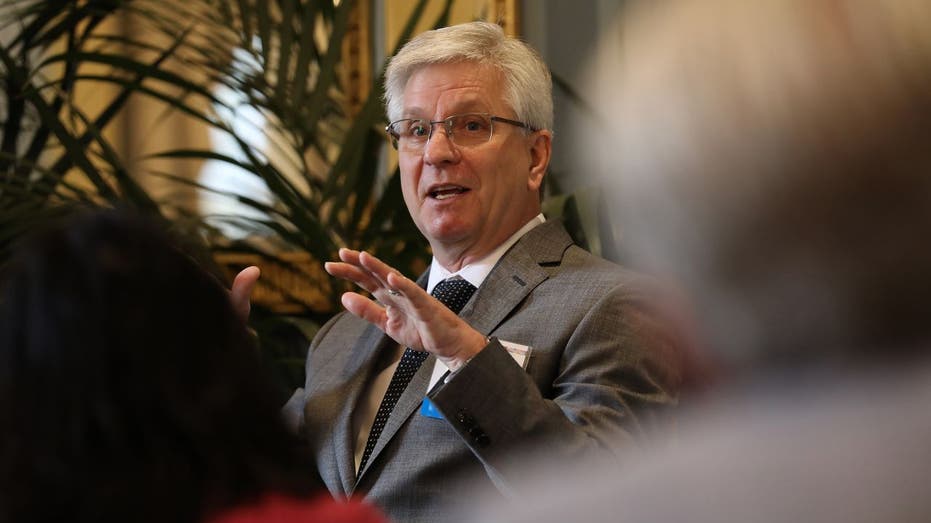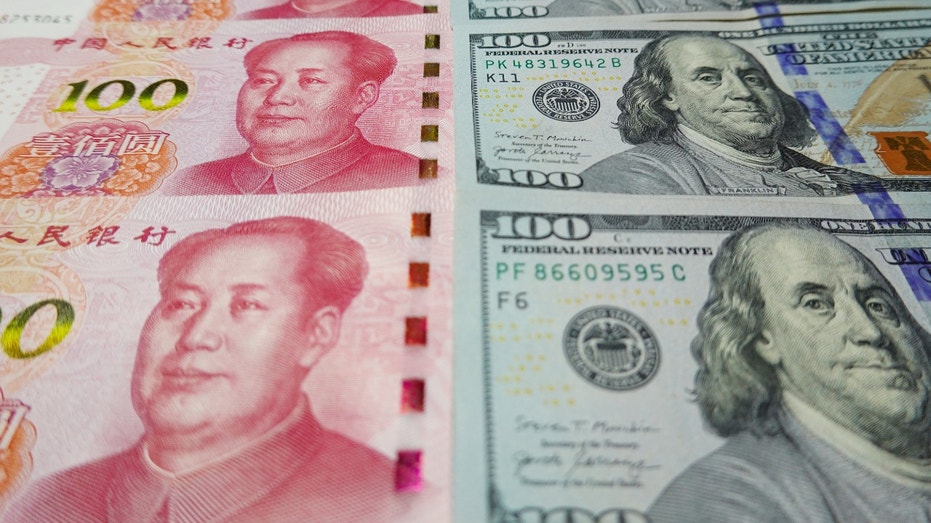Forbes Media chairman Steve Forbes breaks down the administrations inflationary agenda on Kudlow.
Federal Reserve Governor Christopher Waller outlined the case for the world continuing to use the U.S. dollar as the primary reserve currency for international trade in remarks on Thursday.
“Recent commentary warning of a possible decline in the status of the U.S. dollar raises concerns about the effects of sanctions against Russia, U.S. political dysfunction, the rise of digital assets, and China’s efforts to bolster usage of the renminbi,” Waller said at a conference sponsored by the Global Interdependence Center and the University of the Bahamas in Nassau.
Waller went on to say that none of those concerns has resulted in a notable decline in the dollar’s ‘outsized’ role in the global economy – adding that trends like the increased use of digital assets such as stablecoins, which are overwhelmingly tied to the dollar, tend to increase the U.S. dollar’s international profile even further.
“At almost 60 percent of global reserves in 2022, the U.S. dollar is by far the dominant reserve currency. The next leading competitor to the dollar is the euro, with a share of roughly 20 percent,” Waller noted in his remarks.
COULD THE US DOLLAR LOSE ITS RESERVE CURRENCY STATUS TO CHINA?
The US dollar is the world’s primary reserve currency, accounting for about 60% of all foreign currency reserves in 2022. (Photographer: Andrew Harrer/Bloomberg via Getty Images / Getty Images)
“Although some have pointed to a decreasing share of reserves held in dollars, the dollar share – though down somewhat from the mid-2000s – is actually little changed from the mid-1990s. And while there has been an increase in the share held in renminbi, that share is trivial at about 2 percent,” he explained.
Waller added, “To the extent that there has been gradual diversification in reverses since the mid-2000s, it has been into a wide range of other currencies, such as Canadian and Australian dollars.”
The Fed governor noted that “U.S. adversaries have few practical alternatives to the dollar, as other prominent reserve currencies – such as the euro, Japanese yen, and British pound – are all issued by close U.S. allies, who participated in sanctions on Russia.”
TRUE VALUE OF US DOLLAR: STRENGTH, FLUCTUATING CURRENCIES

Federal Reserve Governor Christopher Waller said the U.S. dollar is likely to remain the world’s leading reserve currency. (Photographer: Bess Adler/Bloomberg via Getty Images / Getty Images)
He added that when international financial markets are concerned about stability, investors and governments seek a safe haven to stabilize the value of their assets and typically turn to the U.S. dollar.
“When this happens, there is almost always a ‘flight to the dollar’ and heightened demand for U.S. dollar assets. We saw this in 2008 and again in 2020. This is the ultimate vindication that the U.S. dollar is the world’s reserve currency and is likely to remain so – in times of global stress, the world runs to the dollar, not away from it,” Waller explained.
“I do not expect to see the U.S. dollar lose its status as the world’s reserve currency anytime soon, nor even see a significant decline in its primacy in trade and finance,” Waller said in conclusion.

China’s renminbi is viewed as a potential rival to the dollar, though it accounts for a small portion of global currency reserves. ((Photo Illustration by Sheldon Cooper/SOPA Images/LightRocket via Getty Images) / Getty Images)
GET FOX BUSINESS ON THE GO BY CLICKING HERE
He added, “Recent developments that some have warned could threaten that status have, if anything, strengthened it, at least so far.”
Reuters contributed to this report.
Credit: Source link




